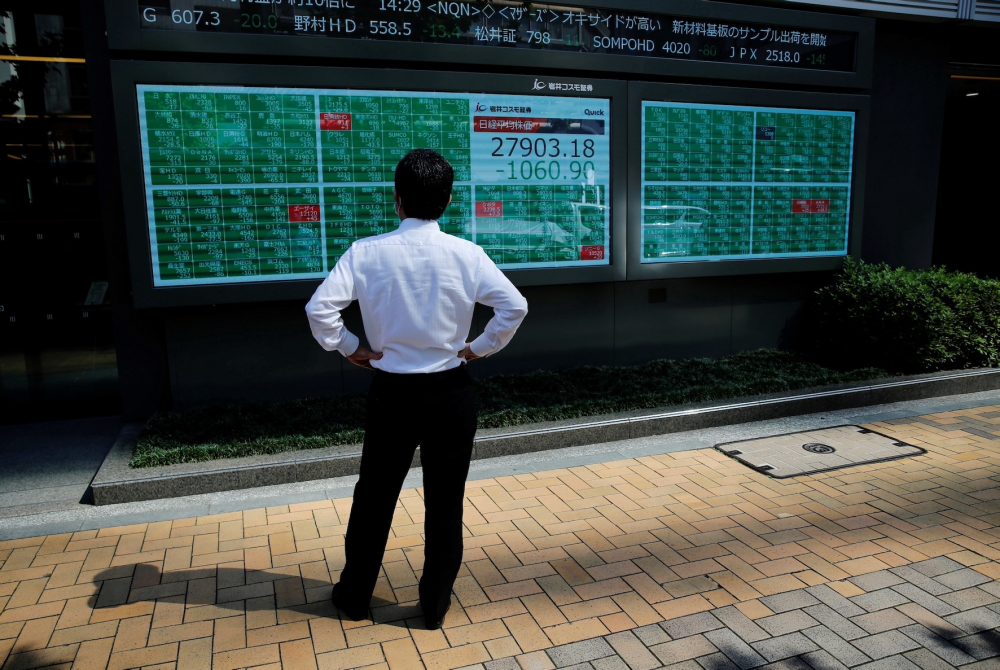Asian stocks dropped back on Friday as the reality of impending rate rises to fight soaring inflation hit home on trading floors.
The retreat came after the previous day’s rally with traders also distracted by the soon-to-end era of ultra-cheap cash and a Covid-19 infection spike that threatens an already fragile economic recovery.
With prices rising at their fastest pace in four decades, the Fed this week set itself on a much more hawkish path to get them under control by pledging to end its vast bond-buying programme by March and signalling a series of interest rate hikes that could run through 2023.
The news on Wednesday was met with a rally across US and Asian markets as investors welcomed an end to the uncertainty that had hung over markets for months, and a Fed plan to rein in inflation.
Also on AF: US to Consult Allies Over Ban on Sales to China’s SMIC
A Bank of England rate hike on Thursday and the European Central Bank’s plan to taper its own financial support – but extending other help – were met with similar upbeat responses in Europe.
However, Wall Street’s three main indexes retreated on Thursday as investors took stock of the news with tech firms, which are more susceptible to higher borrowing costs, taking the brunt of the selling, sending the Nasdaq down more than 2%.
Asia followed and Tokyo lost too while Singapore, Wellington, Mumbai, Bangkok, Manila and Jakarta also dropped into the red. Sydney, Seoul and Taipei edged up.
The benchmark Nikkei 225 index closed down 1.79% or 520.64 points at 28,545.68, while the broader Topix index slipped 1.42% or 28.61 points to end at 1,984.47.
Hong Kong and Shanghai lost more than 1%, with selling amplified by a fresh US crackdown on China with sanctions and trade curbs over Beijing’s treatment of the Uyghur minority in Xinjiang.
China Accused Over Uyghurs
Lawmakers voted to make the United States the first country to ban virtually all imports from the northwestern region over concerns of the prevalence of forced labour, while also hitting companies linked to surveillance there.
Human rights groups say China has been honing new technologies in artificial intelligence and DNA tracking to keep tabs on Uyghurs.
The volley is the latest in a standoff between the superpowers that has left relations at their coldest in decades.
The Hang Seng Index fell 1.20%, or 282.87 points, to 23,192.63, with its Tech Index down by 2.43%. The Shanghai Composite Index dropped 1.16%, or 42.65 points, to 3,632.36, while the Shenzhen Composite Index on China’s second exchange lost 1.41%, or 36.16 points, to 2,523.15.
London’s equity market opened slightly higher but Paris and Frankfurt dipped.
Key figures around 0820 GMT
Tokyo > Nikkei 225: DOWN 1.8% at 28,545.68 (close)
Hong Kong > Hang Seng Index: DOWN 1.2% at 23,192.63 (close)
Shanghai > Composite: DOWN 1.2% at 3,632.36 (close)
London > FTSE 100: UP 0.1% at 7,269.15
New York > Dow: DOWN 0.1% at 35,897.64 (close)
- AFP with additional editing by Sean O’Meara
Read more:
Bankers See China Rule Changes Reviving IPO Prospects in 2022
US Senate Passes Xinjiang Import Ban Over ‘Forced Labour’
























